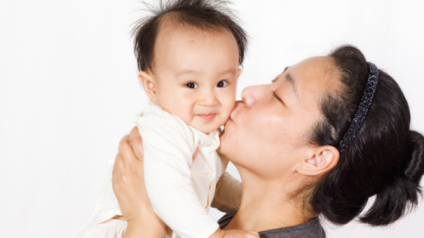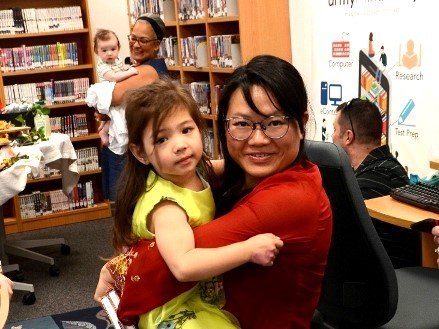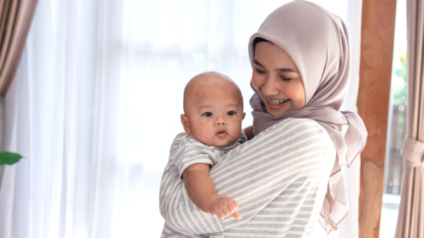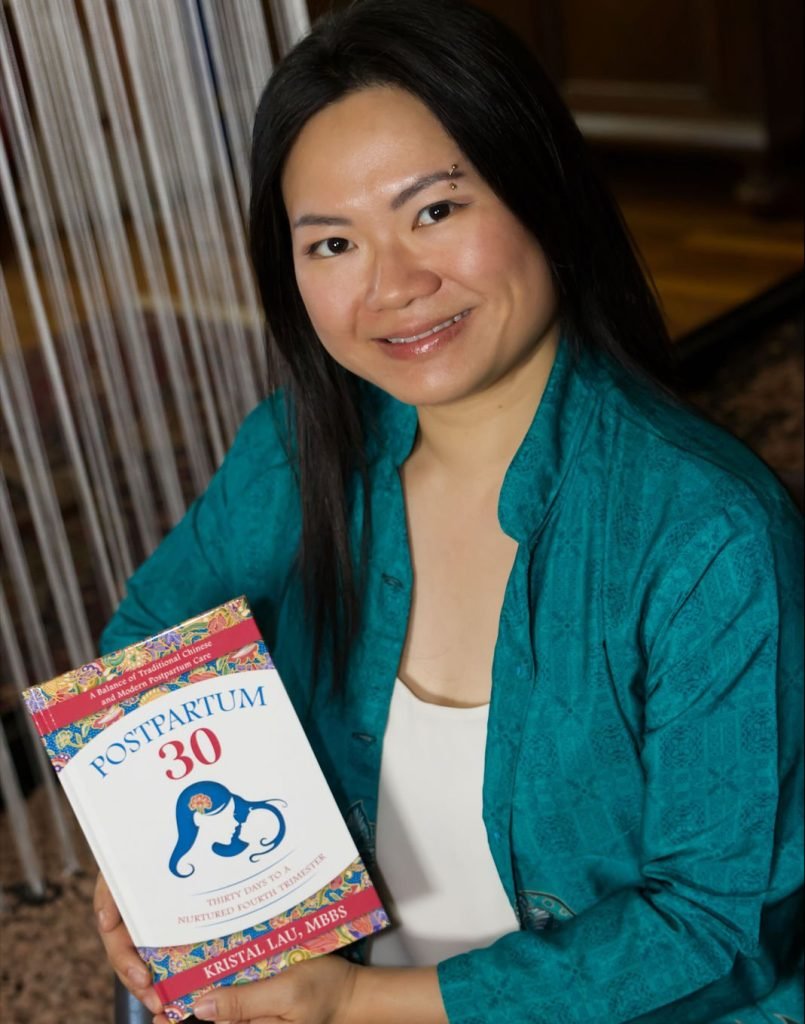Postpartum Confinement is a cherished tradition in many Asian cultures, but modern women may face unique challenges that make a full-fledged traditional Confinement difficult to follow. So we’re going to examine the benefits of a more modern approach that balances tradition with the demands of contemporary life.
Bridging Tradition and Modernity: A Modern Approach to Postpartum Confinement
Postpartum Confinement is a centuries-old tradition in many Asian cultures, designed to support new mothers through the delicate period after childbirth. However, as the world evolves, so too must our approach to the practice.
Dr. Kristal Lau, a global healthcare professional with deep expertise in maternal health, has made it her mission to bridge the gap between the traditional and the modern. Her own experience living abroad, away from the familiar comforts of family and cultural resources, has led her to reimagine Confinement practices for women navigating postpartum recovery in today’s world.
Why Shift to a Modern Postpartum Confinement Practice?
Dr. Lau’s first experience with Confinement was far from what tradition dictates. After having her first child while stationed in Alabama, she quickly realized that following a traditional 30-day Confinement period, as practiced in Malaysia, wasn’t feasible.
Living in the Deep South, thousands of miles away from family and friends, the necessary resources simply weren’t available. Her husband’s limited paternity leave, logistical challenges, and the unavailability of culturally specific ingredients meant she had to adjust the practice to her circumstances.
Dr. Lau’s story reflects the realities faced by many mothers today. Migration, relocation, and modern family dynamics make it difficult to adhere strictly to the cultural postpartum practices of their home countries. However, obstacles don’t mean that the practice has to be abandoned entirely. Instead, she proposes a more flexible approach, one that honors tradition while embracing the realities of modern life.

The concept forms the foundation of her book Postpartum 30, aimed at families who, like hers, are navigating the space between tradition and modernity. The book is written for mothers who’ve moved from East to West, for multi-generational Asian families, and for partners who want to engage in cultural practices but aren’t sure how to begin.
Challenges of Traditional Postpartum Confinement
Adapting the postpartum Confinement practice to fit modern life is not without its challenges. Dr. Lau outlines three major issues with the traditional approach: it’s outdated for the modern woman, it often excludes partners, and it’s simply inconvenient in today’s world.
Outdated for the Modern Woman
The modern woman faces a different set of challenges than previous generations. Many women today are tasked with breaking cycles of generational trauma and oppression, all while balancing careers, families, and societal expectations. The concept of a traditional 30-day Confinement, often requiring total rest and support from a tight-knit community, may seem impractical.
In many cases, women don’t have access to the same family networks or resources as their ancestors. Gone are the days when extended families lived close by, making it easier to receive postpartum support.
For those who have migrated overseas or live in smaller communities, building a network of support takes time—time that many new mothers don’t have. Maternity leave policies, financial constraints, and the need for dual incomes also make it difficult to take the full 30 days of rest that Confinement practices require.
Exclusion of Partners
In many parts of Asia, fathers and spouses are not fully involved in the postpartum period. That isolation of partners may have long-lasting effects on the mother and the family dynamic.
Modern research has shown that fathers and non-birthing partners benefit from active participation in the postpartum journey. They have their own emotional and psychological adjustments to make, and being part of the recovery process might foster stronger familial bonds.

Dr. Lau emphasizes the importance of including partners in postpartum care. She advocates for spouses, family members, and friends to take an active role in supporting new mothers, setting a precedent that recovery is a shared experience.
Inconvenience in the Modern World
Finally, the traditional Confinement practice is often inconvenient in today’s fast-paced world. Access to the specific herbs, ingredients, and care providers needed for traditional Confinement is not always feasible, particularly for those living in Western countries. The time and resources required to prepare traditional meals, teas, and broths could be overwhelming for modern families, who may already be juggling multiple responsibilities.
Strict rules about hygiene, diet, and rest may also feel out of place in the context of modern life. Practices such as avoiding water and consuming only certain teas may not align with the availability of clean, hot water in today’s homes or the knowledge that showering in a warm, sanitary environment poses no risk.

Despite challenges, many women feel a deep sense of fulfillment in following Confinement traditions. The ritual of adhering to cultural practices helps mothers reconnect with their heritage and honor the wisdom of their ancestors.
Finding Balance: A Modern Approach to Confinement
The solution lies in finding a middle ground—one that honors tradition while adapting to modern needs. Dr. Lau’s modern Confinement practice embraces flexibility, acknowledging that every family’s circumstances are unique.
One of the core messages in her book is that cultural practices like postpartum Confinement could evolve to meet the needs of today’s families. As societies change, so too must the way we approach important rites of passage. For families raising children in multicultural households, that balance becomes even more relevant, allowing them to blend heritage with the realities of their current environment.
In doing so, modern mothers preserve their health and create new traditions to be passed down to future generations. Dr. Lau’s work is a testament to the fact that cultural practices, even those as deeply rooted as postpartum Confinement, may be reshaped to serve the modern family without losing their essence.
Partner with Dr. Kristal Lau for Your Postpartum Wellness

Are you ready for a journey of self-discovery and healing? Dr. Kristal Lau is here to support you every step of the way. As a renowned postpartum wellness expert, Dr. Lau offers personalized guidance and support to help mothers thrive in the postpartum period.
Book your free consultation today and learn how Dr. Lau will help you:
- Deal with the challenges of postpartum recovery
- Prioritize your physical and mental well-being
- Connect with your body and mind
- Empower yourself as a mother
Don’t wait any longer. Start your journey to postpartum wellness today!
Want to learn more? Check out Dr. Lau’s podcast, The Postpartum Wellness Show on Spotify, Apple Podcasts, and YouTube for insightful discussions on all things postpartum.
Frequently Asked Questions (FAQs)
What is the most important aspect of a modern Confinement practice?
The most important aspect of a modern Confinement practice is to prioritize the mother’s well-being and create a supportive environment for her and her baby. Do that by adapting traditional rituals to fit modern lifestyles, seeking professional support, and focusing on self-care.
Q: How should I involve my partner in the postpartum Confinement process?
A: Encourage your partner to be actively involved in your postpartum care. They could be helping with household chores, providing emotional support, or simply participating in bonding activities with your baby.
Q: Is it possible to have a modern Confinement experience without a traditional Confinement nanny?
A: Absolutely! A modern Confinement might be successful without a traditional nanny. Consider enlisting the help of family members, friends, or a postpartum doula to provide the support you need.
